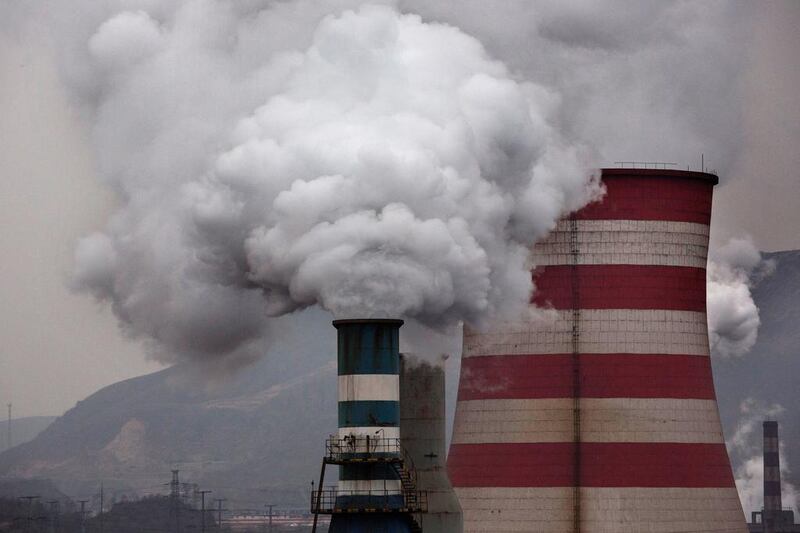After the landmark Paris Agreement on climate change of 2015, many pointed out that the hard work was only beginning. A year later, some might suggest that “hard” has acquired a new meaning. Others, like me, remain optimistic.
The year 2015 was a triumphant one for the United Nations, which reached major agreements on development finance, sustainable development and climate change. The Paris Agreement on climate change was an undeniable victory for multilateralism, with 195 countries agreeing to curb greenhouse gas emissions and take other actions.
For global cooperation, 2016 brought uncertainties. Brexit and the results of the US elections came as stark demonstrations of rising populism and exclusionism in many western countries. Further, protracted global economic stagnation, low oil prices and conflicts in the Middle East seemed to overshadow what sociologist Anthony Giddens calls a “back-of-the-mind issue” such as climate change, which causes impacts over the long term.
Stepping into 2017, the international climate regime now seems to be in search of leadership. Three champions of climate multilateralism are all handing over to successors: UN climate change framework executive secretary Christiana Figueres, who was the driving force behind the Paris Agreement; UN secretary-general Ban Ki-moon, who played an important role in bringing global attention to the issue; and United States president Barack Obama, who made climate change a policy priority, and convinced China and other major emitters to agree to the historic Paris deal.
Perhaps most worrisome is the US transition of power to president-elect Donald Trump, who during his campaign threatened to cancel the Paris Agreement. Although the possibility of a US withdrawal from the agreement or the UN climate change convention received a lot of media attention, a reversal of US emission reduction policies could arguably cause more serious damage to global efforts to combat climate change. It is not yet clear how Mr Trump’s energy and climate policies will shape up. The nominations for key positions in foreign, energy and environmental policy, though, have raised concern among those who see ambitious US climate action as an opportunity for the country – and a necessity for the world.
At the same time, 2016 was a year of optimism and major achievements. In April, the Paris Agreement was signed by a record-high 175 countries in one day. By October, it had the necessary number of ratifications to enter into force a month later.
Major agreements were also reached in 2016 on phasing down a potent family of greenhouse gases called hydrofluorocarbons and on stopping the growth of emissions from air transport. The main annual UN climate change conference, held in Morocco in November, agreed to a two-year time frame for finalising the details on how to implement the Paris Agreement. The Marrakesh conference also sent a strong political signal of determination to tackle the global challenge. It did so in a high-level declaration that the momentum achieved in Paris is irreversible.
As argued in my latest policy brief The UN Marrakesh Climate Change Conference: Aligning the UNFCCC with the Post-Paris Era, published by the Emirates Diplomatic Academy, the international community, under the UN climate convention, now has a three-pronged mission.
First, negotiators and technical experts need to finalise the Paris Agreement “rule book”. Second, political leaders must make sure they send clear messages of determination to implement their national climate plans so as to provide long-term certainty for investors and markets. Third, by joining forces, governments and non-state groups, such as cities, businesses and non-governmental organisations, can find ways to further catalyse the global transition to low-carbon and climate-resilient economies.
The year 2016 delivered well in all these areas. What brings the most cause for optimism, however, is what one could read in the news every day. Not one day passed without announcements about a new solar plant, climate finance grant, pledge to reduce emissions, or a global forum, plan or agreement to address some aspect of the issue. The UN Non-State Actor Zone for Climate Action portal, launched only two years ago, now contains more than 12,500 commitments by cities, regions, companies, investors and civil society actors.
In the UAE, too, an unstoppable momentum is starting to be felt. The UAE was not only part of establishing the UN Global Climate Action Agenda, but it also established itself, through Abu Dhabi Sustainability Week, as the first major gathering place for state and non-state groups after each annual UN climate conference. More forums like this are needed to bring GCC group from different sectors together to share success stories and scale up actions through cooperation.
Even if 2016 brought some causes for concern, it was a year of innumerable success stories that showed that climate action makes good business sense. It is no longer a luxury but a necessity for long-term competitiveness. It is an opportunity that only a fool would turn his back on.
Dr Mari Luomi is senior research fellow at the Emirates Diplomatic Academy





